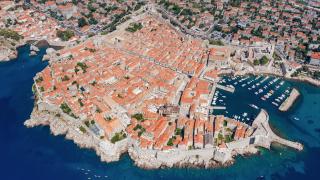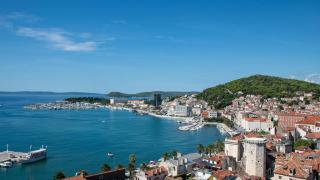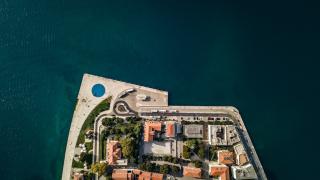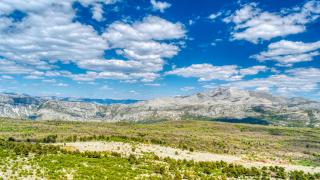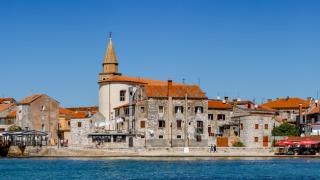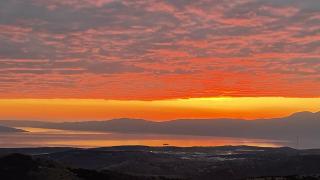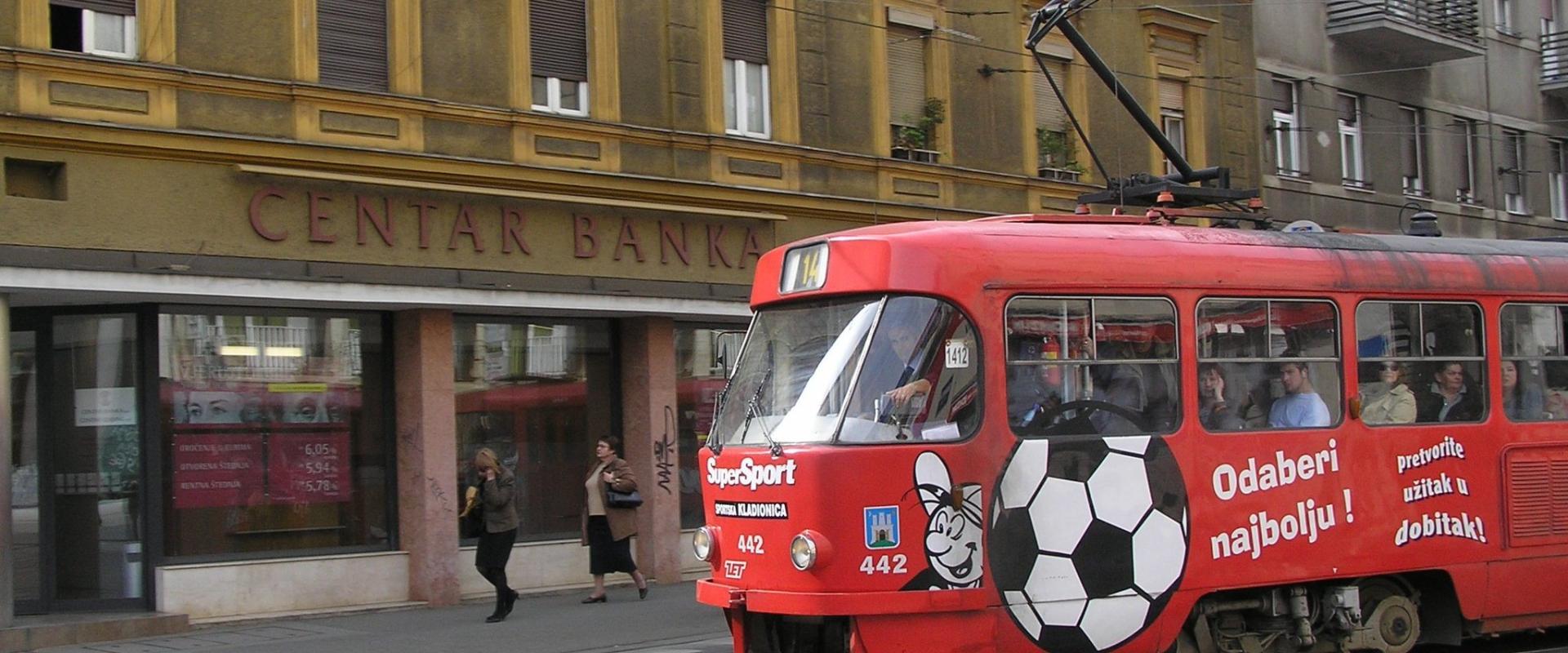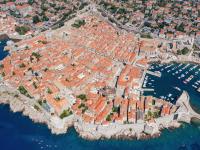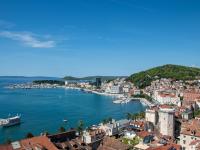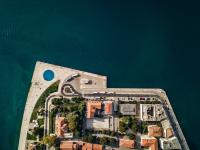Introduction
Croatia's national railway system, operated by Hrvatske željeznice (HŽ), connects major cities across 2,617 kilometers of track. The network features both electric and diesel trains serving domestic and international routes.
The main railway corridors include:
- Zagreb to Split (6-hour journey)
- Zagreb to Rijeka (3.5-hour journey)
- Zagreb to Osijek (4-hour journey)
- Zagreb to Budapest (6-hour international route)
HŽ operates three main service categories:
- InterCity (IC) - premium express services
- Regional trains - connecting smaller towns
- Local trains - suburban connections
Ticket prices start from €3 for short journeys, with InterCity services between major cities ranging from €15-30. Modern air-conditioned trains operate on main routes, while older rolling stock serves regional lines.
The network provides essential transportation for commuters and tourists, with direct connections to neighboring countries including Hungary, Slovenia, and Serbia.
Rail Network Overview
The Croatian rail network centers on Zagreb's Main Station (Zagreb Glavni kolodvor) as its primary hub. Major railway lines extend in four directions:
- Northern Line: Zagreb - Varaždin - Čakovec (Hungarian border)
- Eastern Line: Zagreb - Vinkovci - Tovarnik (Serbian border)
- Southern Line: Zagreb - Split via Knin
- Western Line: Zagreb - Rijeka
Types of Available Trains:
- InterCity (IC) - Premium service with air conditioning
- EuroCity (EC) - International routes to neighboring countries
- Regional trains - Local stopping services
- Night trains - Overnight services on longer routes
Key Infrastructure:
- 2,617 km of operational track
- 1,207 km of electrified lines
- 254 stations across the network
The network connects to major European corridors through:
- Slovenia (Villa Opicina and Ljubljana)
- Hungary (via Gyékényes and Magyarbóly)
- Serbia (through Tovarnik)
Travel times between major cities:
- Zagreb - Split: 6 hours
- Zagreb - Rijeka: 3.5 hours
- Zagreb - Osijek: 4 hours
Most mainline services operate at speeds between 60-160 km/h. Modernization projects are ongoing to increase operational speeds and improve service reliability.
Tickets and Fares
Train tickets in Croatia can be purchased through multiple channels:
- Online booking via HŽ website (www.hzpp.hr)
- Station ticket offices
- Automated ticket machines at major stations
- Mobile app HŽ Passenger
Ticket Classes:
- 1st Class: Wider seats, more legroom, quieter carriages
- 2nd Class: Standard seating, most common option
Common Route Prices (2nd Class):
- Zagreb - Split: 29-39 EUR
- Zagreb - Rijeka: 15-20 EUR
- Zagreb - Osijek: 18-25 EUR
Advance Purchase Benefits:
- 20% discount for tickets bought 48 hours in advance
- 40% discount for round-trip tickets
- 50% discount for students and seniors
Rail Passes:
- Croatia Rail Pass: Unlimited travel for 3, 5, or 8 days
- Eurail Pass: Valid for international connections
- ISIC student cards accepted for discounts
Booking Tips:
- Reserve seats during peak summer season
- Book international tickets at least one day ahead
- Ticket validity: 6 hours for distances under 100km
- 24-hour validity for longer journeys
Refunds are available up to one hour before departure with 10% service fee. Group discounts apply for 6+ passengers traveling together.
Popular Routes
The Zagreb-Split railway line serves as Croatia's primary domestic route, operating multiple daily connections. Journey time averages 6 hours with modern tilting trains running at speeds up to 160km/h.
Key domestic routes and frequencies:
- Zagreb-Split: 3-4 daily trains in summer, 1-2 in winter
- Zagreb-Rijeka: 3 daily connections, journey time 3.5 hours
- Zagreb-Osijek: 4 daily services, travel time 4 hours
- Split-Šibenik: 2 daily regional trains, 1.5 hours
Popular international connections:
- Zagreb-Budapest: 2 daily trains, journey time 6 hours
- Zagreb-Vienna: Daily service via Maribor, 7 hours
- Zagreb-Ljubljana: 3 daily connections, 2.5 hours
- Zagreb-Belgrade: Overnight service, 7 hours
Coastal route highlights:
- Split-Perković-Šibenik line offers scenic Adriatic views
- Rijeka-Zagreb route traverses mountainous terrain through Gorski Kotar
- Summer tourist trains connect Split with key coastal destinations
Most routes offer first and second-class carriages. Night trains to Split and international destinations include sleeping cars and couchettes.
Practical Information
Most Croatian trains offer two classes of service with the following on-board facilities:
- First class: Air conditioning, power outlets, wider seats
- Second class: Basic seating, limited power outlets
Luggage allowance permits two pieces per passenger with maximum dimensions of 90x60x40cm. Additional bags incur a €5 fee.
Station Services:
- Left luggage facilities at major stations (€3-5 per day)
- Information desks open 6:00-22:00
- Wheelchair assistance available with 24-hour advance notice
- Digital departure boards in Croatian and English
Accessibility Features:
- Dedicated spaces for wheelchairs on InterCity trains
- Step-free access at modernized stations
- Priority seating areas clearly marked
- Service animals permitted free of charge
Common Challenges:
- Limited food service - bring supplies for longer journeys
- Not all stations have elevators
- Delays common on regional routes
- Air conditioning may be unreliable in summer
WiFi service is available on InterCity trains but connection quality varies. Toilets are present on all long-distance services.
Conclusion
Train travel offers a reliable and comfortable way to explore Croatia's diverse regions. Modern trains provide efficient connections between major cities, with the Zagreb-Split line serving as the network's backbone.
Key benefits of Croatian rail travel include:
- Cost-effective transportation with discounts up to 40% for advance bookings
- Scenic routes through mountainous landscapes and coastal regions
- Convenient city-center stations reducing transfer times
- Environmental sustainability compared to road transport
Planning recommendations:
- Book tickets 3-7 days in advance for best prices
- Consider rail passes for multiple journeys
- Download the HŽ mobile app for real-time updates
- Check seasonal timetables as schedules vary
While buses offer more extensive route coverage, trains remain the superior choice for comfort and speed on major intercity routes. First-class upgrades provide excellent value for longer journeys.
